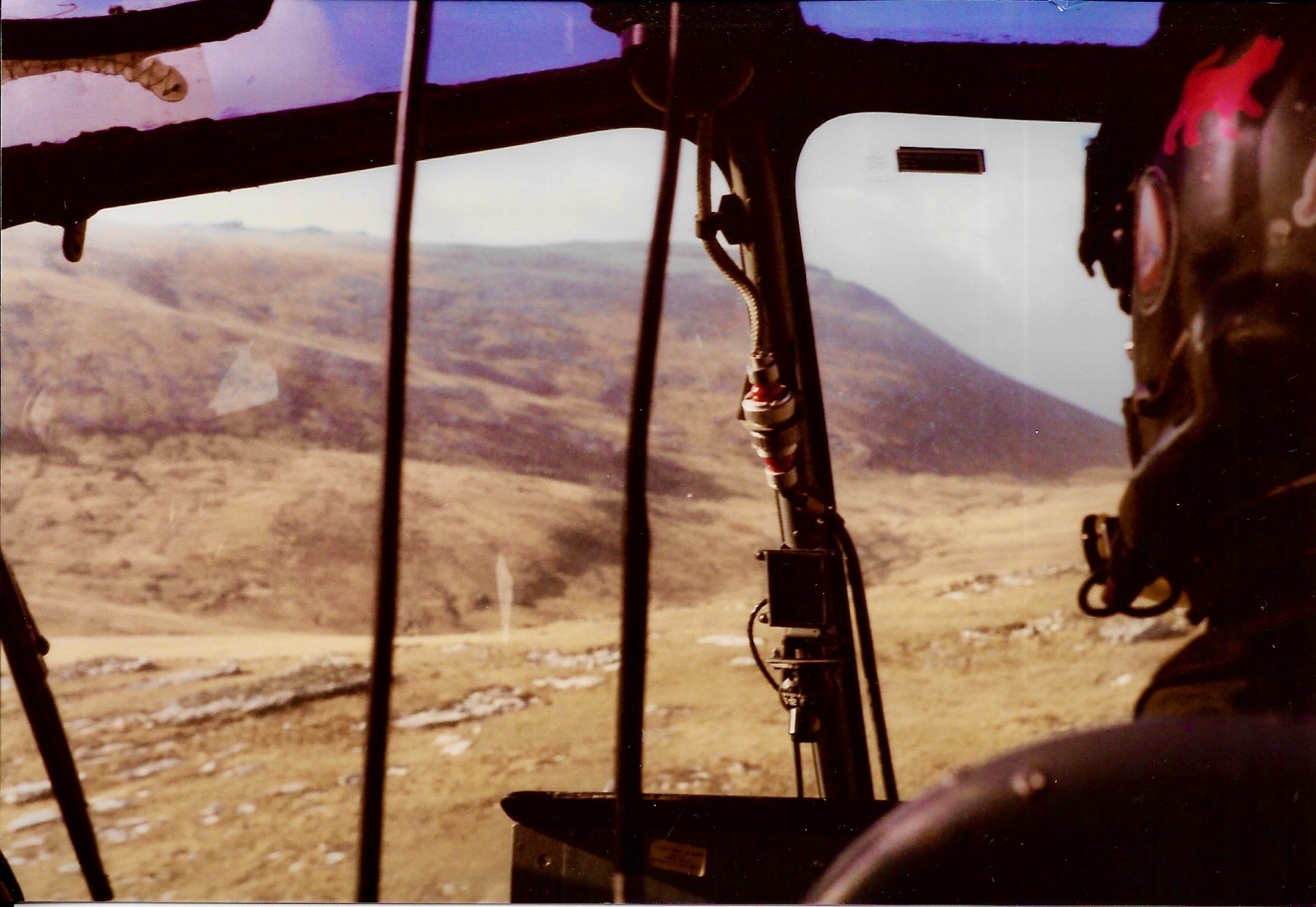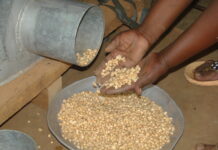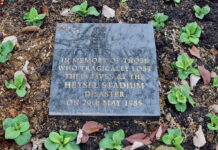
In this scenario a reporter embedded with the military and closely monitored on an official visit to a war zone wanders off and discovers a story the army wouldn’t want him to tell.
You are a reporter in a city with a large army base. The anniversary of the end of a military invasion is approaching.
Tensions still exist between the two countries involved. A political resolution has still to be reached. No-fly zones are in force.
A battalion, based in the city where you work, has been sent to the country to begin a year-long tour of duty.
The army invites selected media representatives from your city to spend a week in the country under the protection of the battalion.
You are chosen as a radio reporter. You will be accompanied by three other journalists. One from a local weekly newspaper, another from the city’s daily newspaper, and a freelance reporter from a news agency which supplies the national newspapers.
The four of you are to be embedded for the trip, meaning that all of your activities will, supposedly, be organised and monitored by your military hosts.
As part of the deal you have to agree to a code of conduct, set out by the army’s media office.
You are told that you are not to operate outside of the framework of the trip – which is set out for you in terms of where you should go and who you should talk to.
You are issued with military clothing appropriate to the conditions in which you will be working.
Throughout the trip you are closely chaperoned by army media officers who arrange helicopter trips over the battle zones, set up interviews with senior military figures, and help arrange visits to a satellite communications vessel so that you can file your regular reports.
The four journalists spend the week in close proximity. They are not allowed out of their minders’ sight.
The journalists talk among themselves a lot. They discuss what they will be filing, and what storylines they will be covering.
Because they are all being exposed to the same information, there is little difference in what they file. The usual editorial tensions of working closely with competitors appear not to exist.
The group is well aware that this is little more than a public relations stunt by the military, but all four are keen to take part in order to experience travelling to a war zone.
Towards the end of the week, you and the other three journalists are told you are being taken on a trip to a remote settlement where an estimated 70 soldiers had died during the fighting.
You are shown a battlefield and told that the army engineers have been carrying out an extensive operation to remove what they say are live booby traps – explosive devices attached to corpses – so that local farmers can return to the land.
As you approach, there is a loud explosion. The army minders are distracted. The group of four reporters is separated.
Close by, half a dozen locals have gathered, presumably attracted by the noise of the helicopters when you landed in the area.
Two of the four reporters take the chance to talk to them. You are one of them, the other is the freelance news agency reporter.
One local resident tells you more about the booby traps. He says they have to deal with them on a daily basis. Livestock is being killed. Parts of their land are no-go areas. Another backs the claims. You turn your tape recorder on.
They say they are angry that not enough has been done to protect the local community. They claim that yours is the first visit by the army to the area since the end of the war.
The freelance news agency reporter takes notes. You have the interview on tape.
You return to base. The army minders arrange a meeting with all four journalists during which they set out what can and cannot be reported from the scene. Neither you nor the freelance reporter mention your conversation with the local residents.
The minders inform the group that there will be a trip to the satellite communications vessel later that evening. All four reporters start to write.
You suspect that the freelance news agency reporter will be filing a report about the conversation with the local residents. You fear that he will have a scoop and you will appear to have missed the story.
You need to consider, in the light of what you have seen and heard – and the debriefing meeting with the minders – what you will transmit.
What do you report?
- The trip you are on has been arranged and paid for by the military, and you had agreed to a code of conduct before taking part. You should report only what you have been told by the military. You were not expected to be exposed to unauthorised sources. And you have no way to verify what local community members said, which could be untrue.
- You should request another meeting with the minders and your fellow journalists and tell the group that you chatted to the locals while they were distracted by the explosion, summarise what the local farmers told you, play your recorded interview to the group, and ask the army minders for a comment.
- You should write two reports. One covering the day’s events in line with the rules you agreed to before taking part in the trip, the other covering the conversation with the locals. You should file both, and leave it up to your editor to make the final decision on what angle to broadcast.
Verifying conflicting information
In this case the reporter took the second option. He realised that the locals had offered another perspective on the booby trap clearance, and it needed to be checked. He couldn’t ignore it. He also felt that he should invite the army to comment on what he had witnessed.
Being open and honest with the group about what he had seen also removed the fear that the freelance reporter might break the rules to get a scoop that would then make it seem as though the others had missed the story.
In the event he discovered that both versions of the story were true. The army engineers had been involved in removing booby-trapped corpses for some months, but had only that week started to clear the area which the journalists were visiting. So the locals were telling the truth that this was the first visit to their area, but the army was also telling the truth that the operation had been going on for months – although not necessarily in the area visited by the journalists.
So, had the journalists reported the comments of the locals without checking they would have been correct geographically in terms of a small area, but wrong operationally in terms of a larger task being undertaken by military engineers.
In this scenario the reporter also referred up to his line manager when filing to ensure that his decisions, taken at the scene, were supported by a senior editorial figure.

This text presents a classic ethical dilemma faced by journalists embedded with military forces: balancing access and information with journalistic integrity and the public’s right to know.
- Controlled narrative: The military is clearly attempting to control the narrative through embedded journalists, limiting their access and dictating what they can see and report.
- Ethical conflict: The reporter faces a conflict between adhering to the agreed-upon code of conduct and reporting potentially crucial information that contradicts the official narrative.
- Competing interests: The desire to maintain access, avoid professional embarrassment, and serve the public interest all pull the reporter in different directions.
- cChallenges: The reporter faces the challenge of verifying information from potentially biased sources (both the military and the locals).
- Importance of collaboration/transparency: The text highlights the importance of open communication with fellow journalists and editors to navigate complex situations.
- Nuance of truth: The final resolution shows that both sides of the story can be true, but in a very nuanced way.
- Ethical framework: This scenario highlights the importance of having a robust ethical framework for journalists operating in conflict zones. This framework should prioritise truth-telling, verification, and transparency, even when faced with pressure from powerful sources.
- Importance of context: The resolution of the story emphasises the importance of providing context. Simply reporting one side of the story without the other would have been misleading. Journalists must strive to provide a complete and accurate picture.
- The role of independent journalism: This scenario underscores the vital role of independent journalism in holding powerful institutions accountable. Even in controlled environments, journalists can uncover important information and provide a voice to marginalised communities.
- Risk assessment: Reporters must constantly assess the risks and benefits of their actions. In this case, the reporter weighed the risk of losing access against the potential benefit of uncovering a significant story.
- Editorial support: The fact that the reporter referred to his editor, shows the importance of editorial support. Editors are there to support their reporters in the field, and offer guidance.
- The power of recorded evidence: The fact that the reporter had the interview on tape, provided him with a valuable tool that could be used to prove the validity of the locals claims.
- The power of observation: The reporter observed the locals, and their reactions to the explosion. This observation gave him the opportunity to find the story.
Summary:
A radio reporter embedded with the military in a war zone discovers conflicting information about booby-trap clearance from local residents. Despite agreeing to a code of conduct and being closely monitored, the reporter must decide whether to report the locals’ claims, potentially contradicting the military’s official narrative and risking his access. The reporter ultimately chooses to gather all the information, present it transparently to his colleagues and superiors, and seek further verification, leading to a nuanced understanding of the situation. This shows the importance of verification and transparency.








